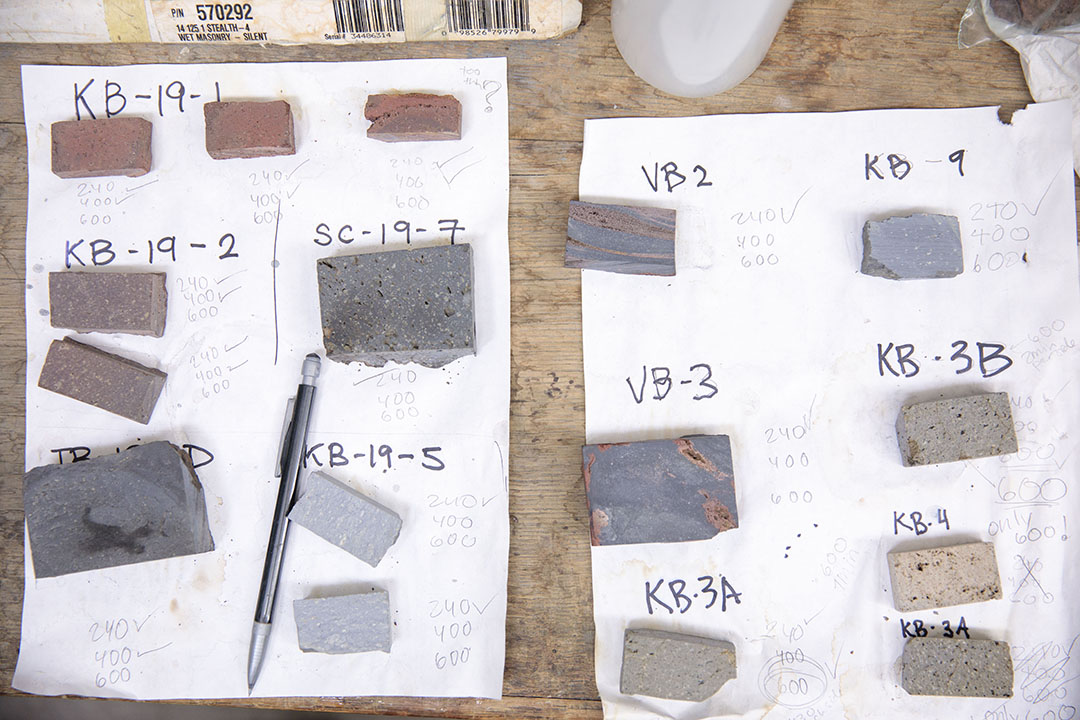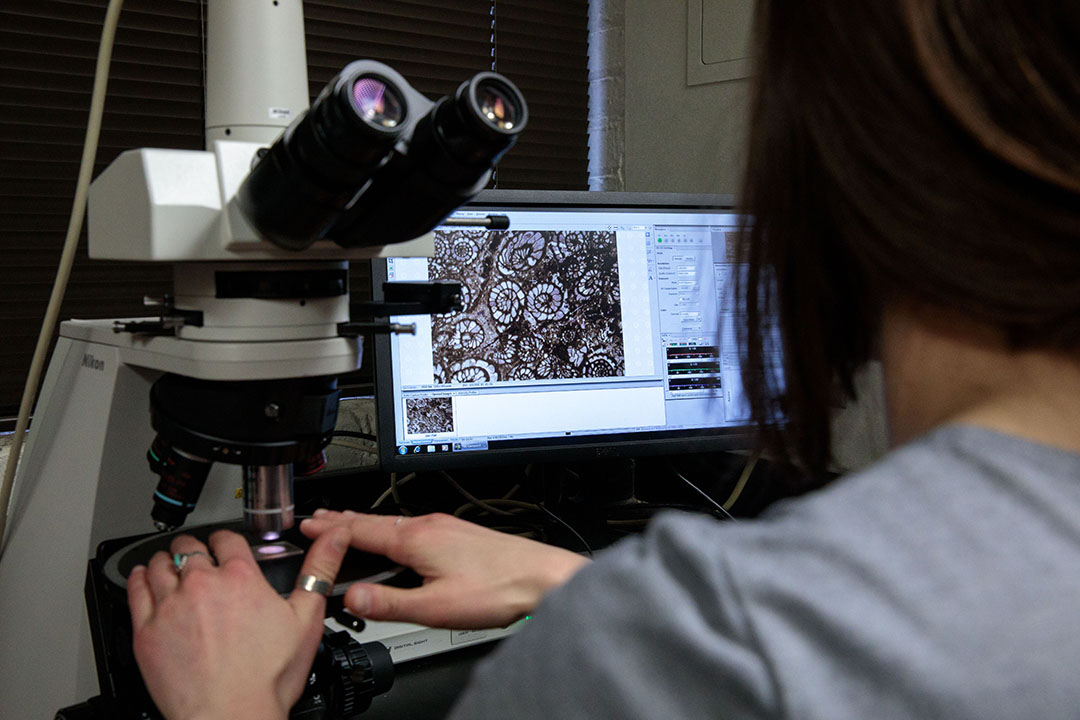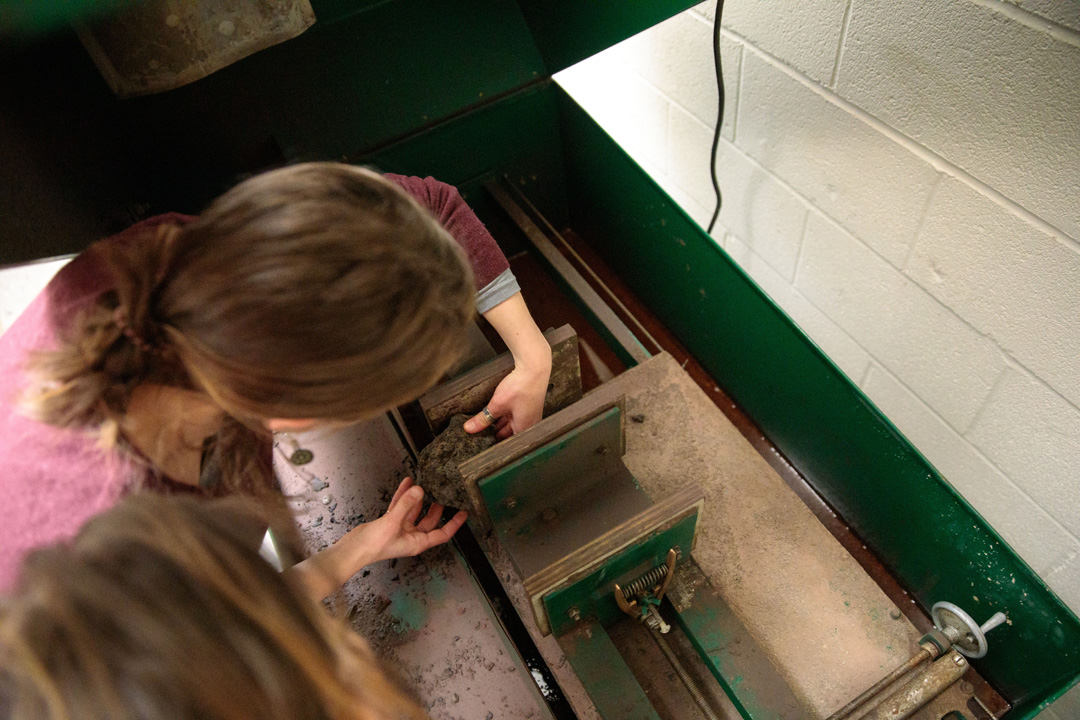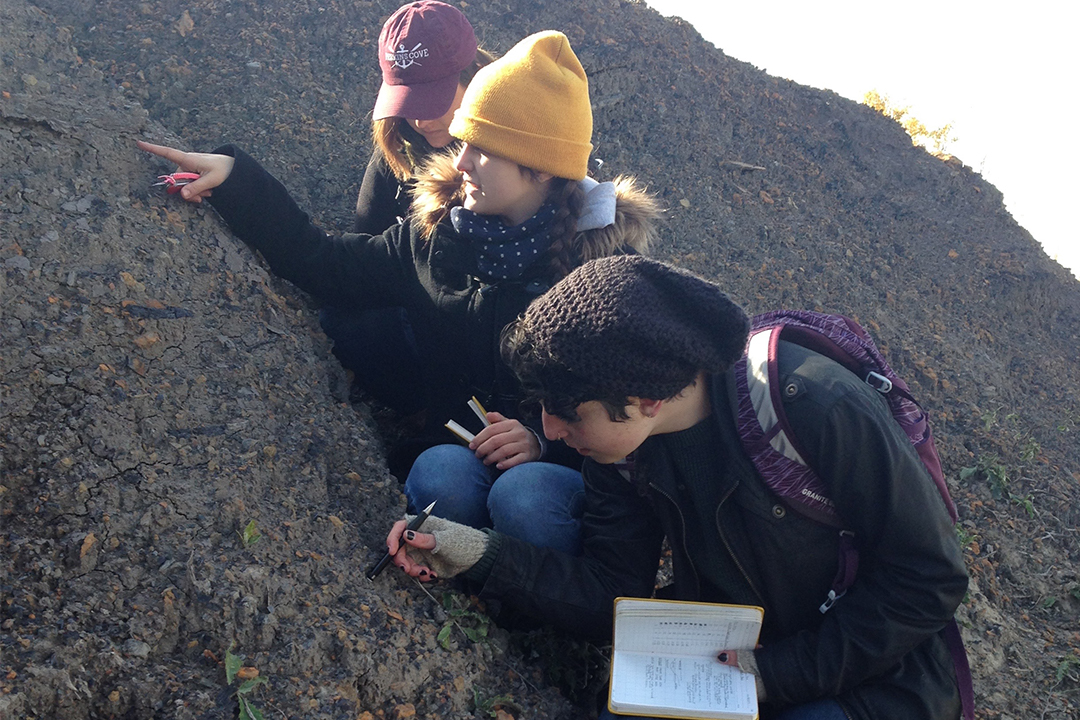Research
Research is a required element of the Geological Sciences Program, encompassing both traditional laboratory practice and on-site fieldwork. We provide students with a broad range of experiences, whether they travel to gather rock samples in the Appalachian Mountains and Yellowstone National Park, or prepare and study million-year-old fossils in the Rock Cutting Laboratory.
Student Research Projects
The undergraduate curriculum is designed to prepare students with the opportunities and skills they need to complete a required research project in their senior year. Senior projects teach students to solve practical problems in geology and related sciences — invaluable experience for future careers and advanced degrees.
Senior projects may require either one or two semesters of effort and typically involve enrollment in GEOL 4199: Undergraduate Research or Reading. Students are encouraged to discuss ideas for possible projects with faculty during the spring semester of their junior year, and no later than the fall semester of their final year of study.
Faculty Advisors
Research projects are generally undertaken in consultation with a faculty member with whom the student typically works closely. Geoscientists from outside GW often become involved in projects and may occasionally serve as the primary advisor, alongside a GW Geological Sciences Program faculty member. All students must complete a project work plan that is approved by a faculty member.
Format
The final project should demonstrate experience in the solution of practical problems in geology and related sciences. All projects should include either a written final report or an oral presentation, or both. Senior projects can be repurposed or expanded for other uses. Student research often leads to poster presentations at conferences, honors theses, awards and internships.
Sample Projects
- Studies of dinosaur anatomy and phylogeny
- Geochemistry of rift-related mafic dikes
- Petrology of Neoproterozoic metavolcanic rocks
- Field mapping and geochemical studies of Mesoproterozoic basement rocks
- Paleomagnetic/structural studies of Late Neoproterozoic mafic metavolcanics
Research Facilities
The Geological Sciences Program houses the Rock Cutting Lab, a facility where students gain experience with all phases of rock preparation: crushing, cutting, grinding and sorting. Students are invited to work on independent research in the lab, and many use the facility to prepare slides from their own samples collected during fieldwork trips to Yellowstone and Oregon. The Rock Cutting Lab houses multiple saws and equipment for making petrographic slides.
In addition to the Rock Cutting Lab, we offer students:
- Extensive fossil, rock and mineral collections
- Petrographic microscopes
- A CT-scan imaging lab
- A rock crushing lab
- Technology for studying geology material in our computer lab
"GW’s campus is close to the Appalachian Mountains and some spectacular geology. I got to know my professors and all the other students in my classes, especially during labs and trips in the field. Bonds were definitely formed over rock outcrops and lunch breaks."
Liz Wilson
BS ’01
Fieldwork
Field experience is an essential and required component of all three Geological Sciences degree programs.
In Field Methods courses, students learn about outcrop analysis, geologic mapping and data interpretation. They apply those skills during weekend trips to local sites, where they might uncover the tectonic processes that formed the Appalachian Mountains or trace vanishing rivers in the Blue Ridge Mountains.
Many students combine lab research and fieldwork, traveling on faculty-led trips to the western United States to gather rock samples and then returning to campus to examine and present their findings.
Faculty Research
From charting the evolution of dinosaurs to unearthing the geochemistry of volcanic rocks, our faculty members are involved in a broad range of geological and paleontological projects. Students are encouraged to reach out to faculty members whose research projects interest them. Learn more about recent faculty research on their individual bio pages.







